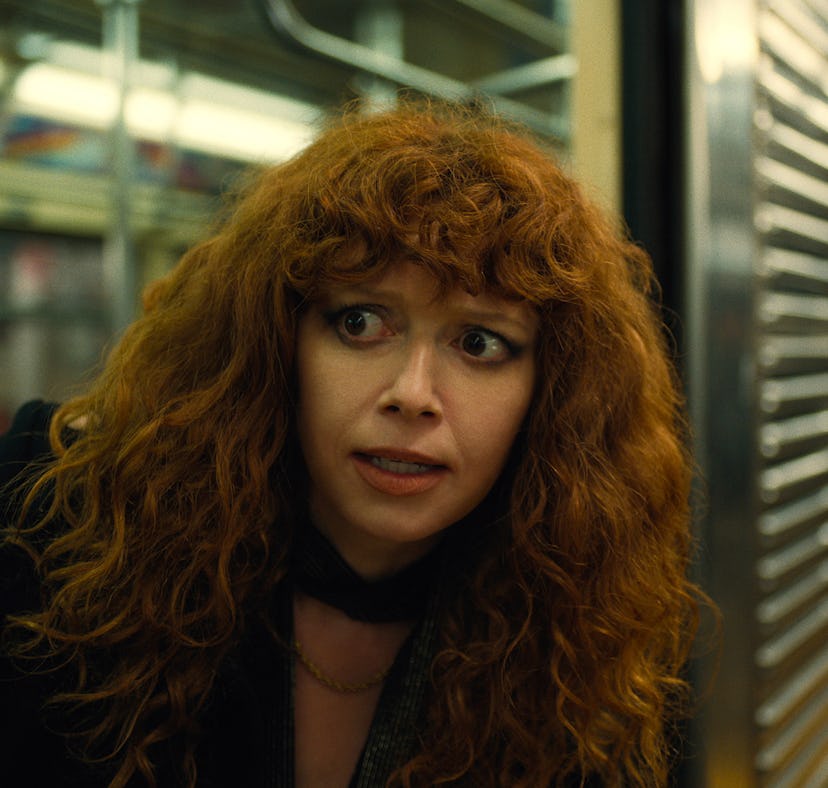
Here's Your Russian Doll Season 2 Glossary, Because It's Necessary
Krugerrands? Gold trains? Crazy Eddie?
Just like Natasha Lyonne herself, Russian Doll’s Nadia seems to speak a language all her own sometimes. While Season 1 was full of the wise-cracking New Yorker marveling at the concept of Thursday and turning “cockroach” into a three-syllable word, the second season is packed with some pretty obscure terms viewers may not be familiar with. If Russian Doll Season 2 has you wondering what a Krugerrand is or Googling the history of Budapest, this glossary of terms from the season will definitely help you out.
Spoiler alert: This post contains light spoilers from throughout Russian Doll Season 2. Because Nadia is jumping through numerous time periods instead of just repeating the same day in 2019 over and over again, the terms and references in Season 2 are a bit more out-there than they were in Season 1. The new season is heavily focused on world history, particularly certain moments in Hungary during World War II and in Germany around the construction of the Berlin Wall. Throw in a few hyper-specific nods to New York City in the ‘80s, and the exact story may even be too obscure for history buffs to follow.
Don’t worry, though. This glossary will break down all the terms that may throw you off in Russian Doll Season 2.
Krugerrands
The main story this season revolves around Nadia trying to secure her grandma Vera’s Krugerrands, which wind up stolen in 1982. Krugerrands are South African coins that were first minted in 1967 to connote a private ownership of gold. After the Krugerrand was introduced and throughout the ‘70s, it was the primary currency for gold investors, which explains why Vera was intent on cashing her family’s valuables in for Krugerrands instead of dollars in 1968.
Guardian Angels
When Nadia travels to 1982 New York, she gets help from a member of the Guardian Angels. The Guardian Angels are a nonprofit volunteer organization founded in 1979 focused on preventing crime outside the official police system. The group began in New York City, where they primarily oversaw subway stations and trains where crime was rampant, so it makes total sense Nadia ran into them after getting off the subway. The Guardian Angels are still active today, and have expanded internationally, with chapters not only in other major American cities but also in countries around the globe.
Hungarian Gold Train
In order to save her family’s valuables that were seized by the Nazis, Nadia researches the Hungarian Gold Train. This was a train that traveled from Budapest, Hungary to Berlin, Germany in 1944, which the Nazis used to transport a large amount of stolen valuables from Hungarian Jews. The Nazis piled all of the most valuable loot they’d taken from the Hungarian Jewish population onto this train as a last-ditch effort to keep the riches for themselves as the Soviet Army was advancing on Budapest. After the war, American forces seized the train, and barely any of the valuables were returned to their rightful owners.
Crazy Eddie
When Nadia first travels back to 1982 New York, she befriends a man at a bar who says he works for Crazy Eddie. Nadia is quick to warn him about his boss, and rightfully so. Crazy Eddie was an infamous electronics chain in New York City in the ‘70s and ‘80s. It became hugely popular thanks to its incredible deals and memorably bonkers commercials, until it was revealed founders Eddie and Sam Antar had committed widespread fraud in managing the company, skimming millions of dollars off the profits for themselves. The fraud became public knowledge in the late ‘80s, so hopefully that guy at the bar took Nadia’s advice to heart and got out while he could.
Russian Doll Seasons 1 and 2 are streaming on Netflix.